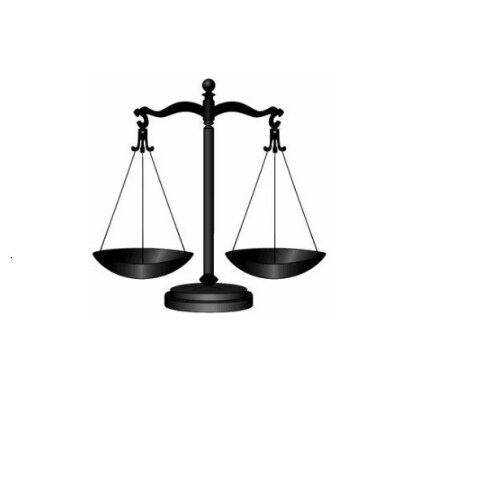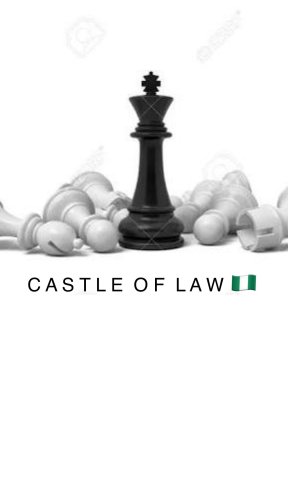Best Constitutional Law Lawyers in Abuja
Share your needs with us, get contacted by law firms.
Free. Takes 2 min.
List of the best lawyers in Abuja, Nigeria
About Constitutional Law in Abuja, Nigeria
Constitutional law in Nigeria is primarily rooted in the 1999 Constitution, which serves as the supreme law of the country. Abuja, being the capital city, is a hub for legal activities, especially those concerning constitutional matters. The Constitution outlines the framework and principal functions of government institutions, delineates the separation of powers, and protects the fundamental human rights of citizens. Lawyers practicing in this field often address issues related to the interpretation and application of the Constitution, ensuring that governmental powers are exercised in accordance with the law and protecting citizens' rights.
Why You May Need a Lawyer
There are numerous situations where the expertise of a constitutional lawyer may be necessary:
- Human Rights Violations: Issues involving breaches of fundamental rights, such as unlawful detention, discrimination, or infringement of free speech.
- Governmental Overreach: Instances where government actions may exceed or misuse legislative, executive, or judicial powers.
- Constitutional Amendments: Legal guidance on proposed changes to constitutional provisions and implications for society.
- Electoral Disputes: Challenges relating to the conduct of elections, eligibility of candidates, and fairness of electoral processes.
- Legislative Interpretations: Cases requiring clarification on how certain laws align with constitutional stipulations.
Local Laws Overview
In Abuja, and Nigeria at large, constitutional law is influenced by several factors including traditional Nigerian legal traditions, statutes, judicial precedents, and the interactions between state and federal laws. Some key aspects include:
- The federal character principle, which seeks to ensure equitable distribution of public offices and appointments across ethnic groups.
- The complex interplay between secular laws and Sharia laws applied in some northern states, although Abuja itself follows secular law.
- Judicial independence and the roles of various courts, such as the Supreme Court, Court of Appeal, and the Federal High Court, in interpreting constitutional matters.
- The entrenchment of fundamental rights in Chapter IV of the Constitution, emphasizing protection against discrimination, freedom of thought, conscience, and religion, among others.
Frequently Asked Questions
What are my fundamental rights under the Nigerian Constitution?
The Nigerian Constitution guarantees several fundamental rights, including the right to life, right to dignity of human person, right to personal liberty, right to fair hearing, and right to private and family life, among others.
Can a constitutional lawyer help with discrimination issues at work?
Yes, if you believe you are facing discrimination based on race, gender, religion, or ethnicity, a constitutional lawyer can provide guidance and initiate legal action.
How are electoral disputes resolved in Nigeria?
Electoral disputes are typically handled by election tribunals set up by the judiciary to examine and rule on matters regarding the conduct of elections or qualifications of contenders.
What is the role of the National Assembly in constitutional law?
The National Assembly is responsible for legislative functions, including amendments to the Constitution and the enactment of laws that conform to constitutional standards.
Can constitutional rights be challenged or restricted?
While constitutional rights are protected, they can be restricted under certain conditions prescribed by law, such as during emergencies. However, such restrictions can be challenged in court.
How does the Nigerian legal system handle judicial review?
Nigerian courts have the power to review government actions and legislation for their adherence to the Constitution, ensuring that no law or act violates constitutional provisions.
Is there a specific court for constitutional matters?
While there is no exclusive "constitutional court," constitutional issues may be heard by various courts, including the Federal High Court, the Court of Appeal, and ultimately, the Supreme Court.
How can a constitutional amendment be made?
Amending the constitution requires a proposal by either the National Assembly or State Assemblies, approval by two-thirds of each house, and ratification by at least two-thirds of state legislatures.
What legal recourse is available for unlawful detention?
An individual can file a habeas corpus application demanding a court to order their release if unlawfully detained, and they can seek redress for any breach of rights involved.
How can I ensure my legal rights are upheld?
Engaging a constitutional lawyer to interpret and handle legal issues concerning your rights can ensure they are upheld, and they will guide actions to be taken when rights are violated.
Additional Resources
For more information or legal help, you may wish to consider contacting the following organizations and governmental bodies:
- Nigerian Bar Association (NBA): A professional association for legal practitioners offering resources and networking opportunities.
- National Human Rights Commission (NHRC): Promo accountability and offers redress mechanisms for human rights infringements.
- Federal Ministry of Justice: Provides information on legal processes and can be a starting point for understanding legal frameworks.
- Legal Aid Council of Nigeria: Offers legal assistance to individuals unable to afford private legal services.
Next Steps
If you're seeking legal assistance in constitutional law, follow these steps:
- Document all relevant details and facts concerning your legal issue to present a clear case to a lawyer.
- Contact a lawyer specializing in constitutional law through the Nigerian Bar Association or seek referrals from reliable sources.
- Prepare questions and any documentation related to your case for your initial consultation.
- Engage the lawyer's services to address your legal needs, whether it involves litigation, mediation, or advisory services.
Lawzana helps you find the best lawyers and law firms in Abuja through a curated and pre-screened list of qualified legal professionals. Our platform offers rankings and detailed profiles of attorneys and law firms, allowing you to compare based on practice areas, including Constitutional Law, experience, and client feedback.
Each profile includes a description of the firm's areas of practice, client reviews, team members and partners, year of establishment, spoken languages, office locations, contact information, social media presence, and any published articles or resources. Most firms on our platform speak English and are experienced in both local and international legal matters.
Get a quote from top-rated law firms in Abuja, Nigeria — quickly, securely, and without unnecessary hassle.
Disclaimer:
The information provided on this page is for general informational purposes only and does not constitute legal advice. While we strive to ensure the accuracy and relevance of the content, legal information may change over time, and interpretations of the law can vary. You should always consult with a qualified legal professional for advice specific to your situation.
We disclaim all liability for actions taken or not taken based on the content of this page. If you believe any information is incorrect or outdated, please contact us, and we will review and update it where appropriate.














